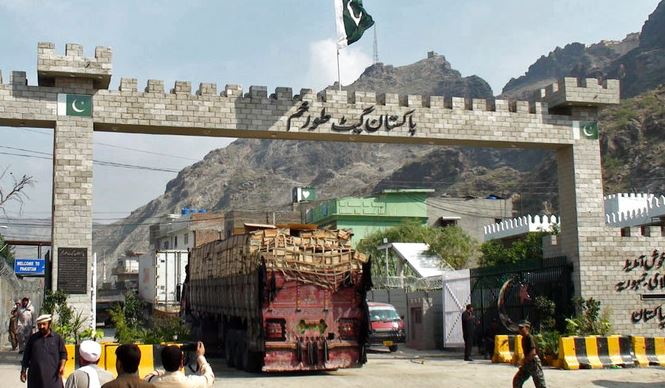PESHAWAR– The efforts of the Pakistan Tehreek-e-Insaf government to shore up falling exports with the neighbouring country Afghanistan aren’t working in its real spirit.
“The situation has not improved significantly despite opening of round-the-clock operations at the Torkham border last September to boost bilateral and transit trade,” Frontier Custom Clearance President Ziaul Haq said on Sunday.
Talking to Pakistan Today, he said apart from increasing the number of staffers of different departments and installing other facilities at the border the trade between the two countries didn’t improve visibly.
The exports had witnessed a minor increase in the last fiscal year as according to the Pakistan Bureau of Statistics (PBS), Pakistani exports to Afghanistan were Rs128 billion in FY19 as compared to the exports of Rs122 billion in FY18.
However, the share of Pakistani exports with landlocked Afghanistan had dropped from seven to six per cent, PBS statistics further say.
The traders and businessmen believe that political tension, poor border management, extortion fees, strict security checking system and trust deficit between the neighbouring countries are not benefitting the economy of either country.
According to Ziaul Haq, the trade volume between Pakistan and Afghanistan has adversely affected due to poor border management at both sides, leaving trade and transit volume reduced from $2.5 billion to mere $55 million.
Justifying his argument, Zia said up to 2,000 trucks were crossing border everyday but due to lack of facilities on the other side of the border and its closing in nights usually left the trucks awaiting days to clear.
He said the exports had not improved despite round-the-clock opening of the Pak-Afghan border.
Zia said Rs50,000 to Rs70,000 were charged from a single truck at the border, adding the clearance agents had reservations over handing over the matter of checking transporters to the National Logistics Company (NLC) instead of the Customs department that led to time wastage.
The restoration of peace and writ of the government in the recently merged districts of the Khyber Pakhtunkhwa (KP)-that shares more than 20 former and traditional cross points with Afghanistan- had provided a great opportunity of mutual trade and with other regional countries, he added.
Sarhad Chamber of Commerce and Industry (SCCI) Senior Vice President Shahid Hussain said to overcome the challenges both the countries needed to revise the Afghanistan and Pakistan Transit and Trade Agreement (APTTA) 2010 as it carried certain flaws.
He said after ending the Indian subsidy for Afghanistan and CPEC projects, Pakistan would again become hub for Afghanistan.
Chinese Ambassador to Pakistan Yu Jung, at a seminar on the Pak-China Economic Transit project held at the University of Peshawar a month ago, had said China was trying to expand the project and build a railway track from Pakistan to Jalalabad.
The 24-hour opening of Pak-Afghan border was part of a comprehensive plan under which Peshawar would become a major trading area for regional trade, the ambassador added.
Experts believe if both countries address the issues of poor border management, extortion fees, strict security checking system and slow clearness of goods, the bilateral trade between Pakistan and Afghanistan has a potential to increase up to $5billion.




